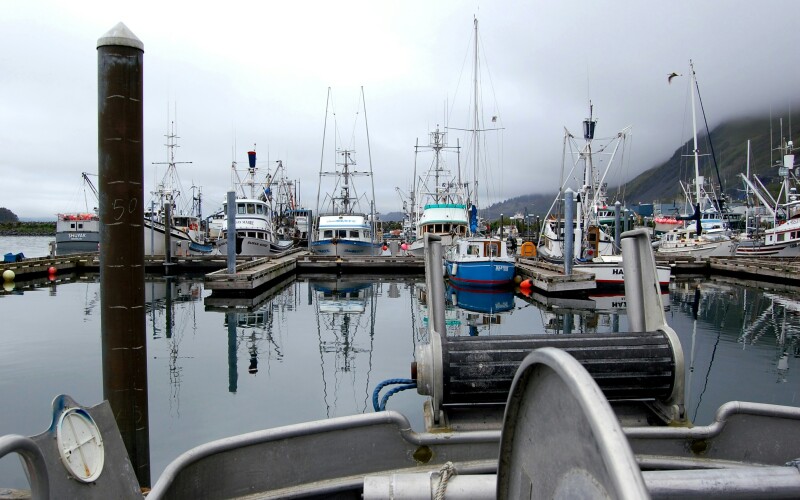Alaska Senator Lisa Murkowski introduced the Working Waterfront Act, legislation that includes more than a dozen provisions aimed at boosting the workforce, energy and shoreside infrastructure, food security, and economies of coastal communities in Alaska and across the country. The bill will also support efforts to mitigate the impacts of climate change on coastal communities and strengthen federal conservation research projects.
Murkowski began accepting feedback from Alaskan people to help draft the Working Waterfront legislation.
“The blue economy continues to be a growing and thriving industry full of opportunity for coastal communities in Alaska- and that’s why I’m focused on bolstering the workforce and strengthening shoreside and coastal infrastructure through the Working Waterfronts Act. I want to thank the many Alaskans who engaged with my team and me to craft this legislation. You shared thoughts and ideas with me, and we have a strong product,” shared Murkowski in a February press release.
“Our state is home to 66,000 miles of coastline, with thousands of people reliant on our rivers and oceans that can house successful fishery operations, tourism opportunities, mariculture, and more. To ensure that we capitalize on the opportunities that exist through the blue economy, we need to ensure that we have the infrastructure and workforce to support our goals. This bill won’t just help young fishermen and innovative entrepreneurs but will boost research and climate change mitigation efforts as we work towards a more sustainable future. I’m proud to introduce this bill that holistically invests in coastal communities and the blue economy.”
The Working Waterfront Development Act establishes a grant program for infrastructure improvements for facilities benefitting commercial and recreational fishermen, mariculturists, and the boatbuilding industry. U.S. Senators Murphy, Blumenthal, and Warren recently introduced legislation to modernize outdated regulations governing commercial fishing along the Atlantic Coast. The Supporting Healthy Interstate Fisheries in Transition Act (SHIFT) will require the Department of Commerce to consider changing geographic ranges of fish populations as it oversees federal fishery management plans and quota allocations.
The SHIFT Act and the Working Waterfront Act focus on helping commercial fishermen adapt to the changing climate and implement changes to sustain the industry further.
“The Alaska Seafood Marketing Institute (ASMI) thanks Senator Murkowski for her continued efforts to support Alaska’s commercial fishing industry, which provides tens of thousands of jobs and billions of dollars in economic impact across the state. The Working Waterfronts Act would make impactful changes that are needed now, such as expanding access to USDA loans for fishermen and processors, providing grants for improving waterfront infrastructure that benefits commercial fishermen, and creating a new program to improve maritime workforce development. These changes, along with many others in the Act, help the Alaska seafood industry, a critical pillar of Alaska’s economy,” said Greg Smith, communications director at ASMI.
Murkowski’s bill highlights tax credits for marine energy projects, fishing vessel alternative fuels pilot programs, rural coastal community processing, and cold storage grants. Read more about the Working Waterfronts Act here.







